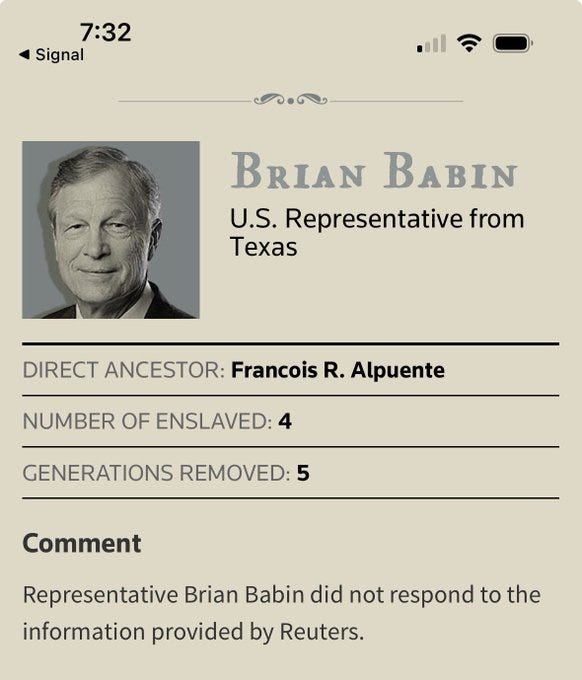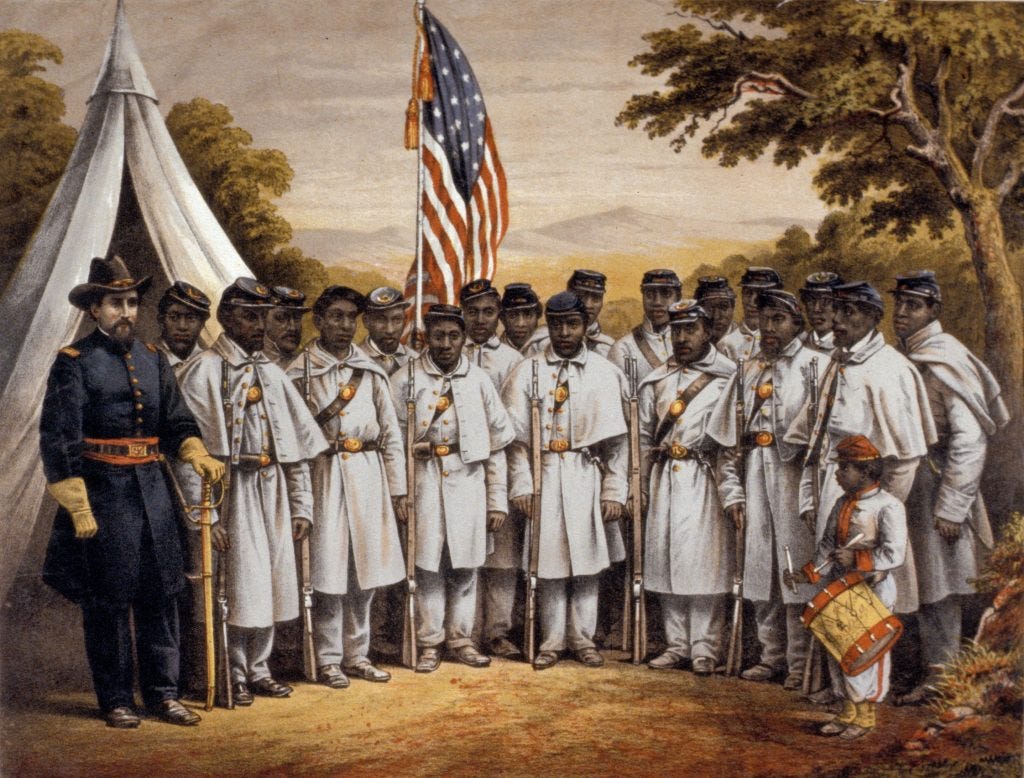Booker, Crockett, and Green? They Don’t Speak for Me!
In a nation still reeling from its unresolved legacy of slavery, elected officials who claim to champion justice must be held to account—not by party affiliation or media acclaim, but by the measurable impact of their actions. Yet today in this day and age, Cory Booker, Jasmine Crockett, and Al Green stand as case studies in political performance over reparative progress. Their recent actions—ranging from dramatic speeches to civil rights-era song renditions—might inspire headlines, but they do not advance the cause of material justice for the descendants of American chattel slavery.
In late March 2025, Senator Cory Booker held the Senate floor for over 25 hours in protest of President Trump’s second term. His speech touched on health care, immigration, national security, and education (U.S. News, 2025; BBC, 2025).
Yet Booker’s protest—though symbolically impressive—failed to propose any legislative path for reparations or structural repair. The same Senator who once invoked love and hope during past campaigns continues to avoid direct advocacy for cash-based restitution, despite decades of economic data validating its necessity (Darity & Mullen, 2020).
His silence on Freedmen-specific policy not only distances him from the reparations movement—it aligns him with status-quo liberalism that talks Black but legislates blue.
Representative Jasmine Crockett (D-Texas) has rapidly fallen from grace among her base. Touted as a rising star, Crockett now faces legitimate accusations of hypocrisy:
-
She took nearly $400,000 in PAC money, despite tweeting in 2020 that she had accepted “zero dollars” from such groups (AOL News, 2025; NY Post, 2025).
-
She mocked the idea of issuing $5,000 DOGE reparations checks, proposed as a federal dividend strategy to distribute recovered government waste savings to Black taxpayers (Daily Mail, 2025).
This public dismissal stands in stark contradiction to her previous endorsement of reparations, exposing a strategic pivot from justice to careerism. Her move reveals a deeper pattern of Democratic representatives distancing themselves from Black economic claims once they’ve secured institutional power.
On March 6, 2025, Representative Al Green was censured by the House for interrupting President Trump’s State of the Union address. In response, he led fellow Democrats in singing “We Shall Overcome”—an anthem of the Civil Rights Movement (AP, 2025; Roll Call, 2025).
While the moment appeared defiant, Green has no legislative history of proposing material reparations for Black Americans. His reliance on symbolic protest mirrors a broader political strategy of nostalgic reenactment, where movement songs and moral outrage are substituted for budgets, legislation, and redistribution.
At a time when economic redress is not only possible but necessary, Green’s performance represents a retreat into pageantry.
The movement’s rallying cry—“No one gets paid before we do”—articulates not revenge, but a first-in-line economic claim rooted in global human rights law and U.S. constitutional precedent. In contrast to elected officials, grassroots organizers are using artificial intelligence technologies like ChatGPT to build quantifiable models for reparative justice based on harms.
Using historical census data, genealogical tracing, and economic modeling, descendants of the enslaved have already submitted initial evidence of punishable harms and acts of genocide such as preventing births to the International Crimes Court (ICC) and International Court of Justice (ICJ).
Based on the basic math of a 2% annual growth rate with normal mortality rates if there were 4 million emancipated slaves in 1863 then there should be more than 102 million descendants living in the United States in 2025. But due to real-world factors such as displacement from immigration, increased mortality rates, intermarriage, and destructively hypocritical legislative policies the actual number of descendants living today could be lower than 50 million. Thanks to the magic of technology the great grandchildren of the 4 million emancipated slaves have been able to locate, cross reference, and alphabetize the names of former slaveholders to charge them for Stolen Labor and unpaid Wages from 1863 to 2025. Families of former slaveholders “old money” who could be charged in court are Texas Congressman Brian Babin. Born in Port Arthur and raised in Beaumont, Reuters listed Babin as the direct descendant of Cajun slave owners who migrated from the backwoods swamps of Terrabonne, Louisiana to Port Arthur Texas just after the Civil War. Babin’s ancestors, Alpuente, was allegedly found on an 1860 Slave Schedule and with that generational wealth he and his wife of 50+ years successfully raised five children. Now they have 17 grandchildren.
If the importation of slaves from Africa was banned in 1808 then the 1 million or more enslaved persons forcibly relocated between 1808 and 1865 would have been illegally bought and sold. There is no statue of limitations for crimes against humanity and according to the news breaking a family’s bond through the trafficking is a human rights violations. The enduring dislocation remains a structural harm, comparable to cultural genocide under the UN Convention on the Prevention and Punishment of the Crime of Genocide (1948), which includes “forcibly transferring children of the group to another group” as a genocidal act. The Trans Atlantic slave trade and breeding of chattel slaves in the United States were two of the greatest deliberate tragedies around the world and dismantling legal structure based on skin color means using the legality of forced labor and debt to annihilate the enemy.
Categorizing restitution lawsuits against the Five Civilized Tribes, the United States federal government, and the wealthiest early colonial families or plantation holders separate from the international community means easier calculations for specific items. Grassroots experts estimate restitution for the unpaid and forced labor from emancipation in 1863 to January 20, 2025 at $8 million per descendant of the emancipated four million. However that is only for unpaid and forced labor. That doesn’t include Land Theft and Forced Expulsions, Racial Terror (e.g., riots, lynching), or Destruction of Families and Psychological Harm. With a clarity in date ranges and grouping by harms the 2025 descendant class is using free artificial intelligence tools to build networks of kinship harms enforceable in court. A measurable harm that creates a kinship are policies like the Funding Act of 1790 — the foundation of economic harm that government policy stabilized the nation’s economy through the unpaid, brutalized labor of the enslaved while consciously denying them recognition, redress, or personhood. Although the ICC does not have jurisdictional authority to address wrongs of the past, there are no statue of limitations against crimes against humanity. Those enslaved up to the 1700s the historical precedent of this crime against humanity in the ICC to benefit all enslaved families.
Filing lawsuits against former slave owners means using the legal trauma of slavery to destroy the debt peonage system of servitude where people are forced to work to repay debts. Separated by time periods, categorized by guilty parties, and cross referenced with collective and individual legal tactics the Descendant class is using the down time from not saving the world to quietly research and dissect each family’s genealogy to identify slave owners, identify the harms, and apply the correct crime or broken treaty. Opposers might protest at first but while the Spring has been focused on gathering more evidence to the ICC and the collective mix of class action and individual lawsuits planned in the fall that means the community’s outreach plans for the summer are:
-
Deport and remove foreign or immigrant politicians
-
Bypassing state governments because they historically participated in forced sterilizations, KKK impunity, and embezzlement of stolen wealth.
Grassroots thinkers are also rethinking how to punish political treason. Instead of the traditional punishment for treason, death, instead officials who aligned with foreign lobbies, conceal state violence, or sabotage reparations should face banishment from the United States. A principle that echoes the restorative justice frameworks seen in post-apartheid South Africa a 500-year exile and banishment for that person and their bloodline not only removes the harm, but prevents its return. In the age of data-driven policy, exile, deportation, and banishment is the easiest method to safeguard a future for the Freedmen.
Cory Booker’s speeches. Jasmine Crockett’s contradictions. Al Green’s censure-and-song. These performances belong to a dying political era, where proximity to whiteness and status-quo power took precedence over transformative repair.
The future belongs to those building systems, reclaiming data, and training communities in how to access and defend their legal Freedmen status. The age of return is not symbolic—it is logistical, genealogical, and strategic.
They do not speak for the children of the former slaves — we speak for ourselves.
And to those who resist?
Don’t want to pay? No worries. You don’t get to stay.
###
-
Darity, William, and A. Kirsten Mullen. From Here to Equality: Reparations for Black Americans in the Twenty-First Century. University of North Carolina Press, 2020.
-
“Four Notable Moments From Sen. Cory Booker’s Marathon Speech.” U.S. News, April 2025.
-
“Jasmine Crockett Branded a Hypocrite.” AOL News, April 2025.
-
“Crockett Dismisses DOGE Reparations.” Daily Mail, April 2025.
-
“PAC Donations and Foreign Trips Under Scrutiny.” New York Post, April 2025.
-
“Rep. Al Green Censured by House Colleagues.” Roll Call, March 2025.
-
“Green, Democrats Sing Civil Rights Anthem During Censure.” Associated Press, March 2025.








